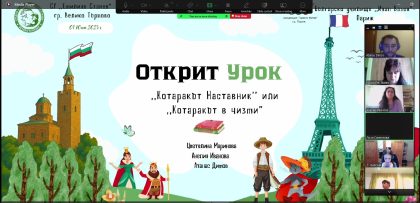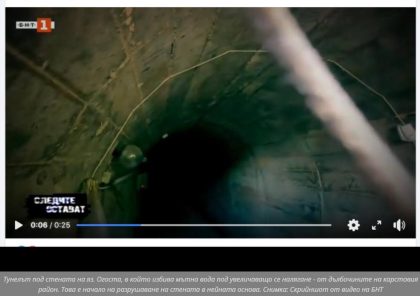Over 10,000 children are missing from Europe’s refugee camps and European leaders are doing nothing about it.

This means 10,000 children without food, without shelter, and without love. 10,000 children who are scared, vulnerable, and alone. 10,000 children who should be at school, out playing, and having fun. Instead, they are missing, at risk from violence, and exploitation.
From Ireland to Italy, and from Brussels to Berlin, right across Europe our political leaders are failing to act. They are running scared of populist politicians who are using Europe’s refugee crisis for political gain. Europe’s leaders will continue to ignore these vulnerable children unless we demand they take action.
Can you help protect missing children? Sign now.
Children as young as six are travelling alone in Europe. They have fled war and famine, witnessed the bloody murder of family and friends. They have sailed past the floating dead bodies of their fellow country men, women and children in the Mediterranean. We believe that when they reach European shores, they should be guaranteed safety, and protection of their basic rights.
Yet 10,000 of these children are currently missing in Europe – many trafficked into sex slavery and other forms of exploitation. Tens of thousands more are at risk of a similar fate.
We demand that the EU takes immediate action to protect this most vulnerable group of people.
Are you with us?
Why is this important?
Europe is facing one of the biggest humanitarian crisis of our time. We will not stand by and let it continue to be one of the greatest human rights breaches of our time.
By signing this petition, you are putting pressure on the EU to take immediate action to ensure that unaccompanied and separated children are guaranteed safety and protection for their basic rights.
You are demanding that they receive access to basic nutrition, health care, education and legal assistance.
You are imploring the EU states to treat cases of missing unaccompanied and separated refugee and migrant children with the urgency and seriousness they would any other child.
You are refusing to look the other way, while this ethically indefensible human rights breach of the most vulnerable people on the continent takes place.
Open Letter
As citizens of Europe, we are deeply concerned by the human rights breaches of the tens of thousands of unaccompanied and separated children (UASCs) that have travelled to Europe since the height of the migration crisis. We call on the Justice and Home Affairs Council to take immediate action.
These are children who have fled war and famine, witnessed the bloody murder of family and friends, who have sailed past the floating dead bodies of their fellow country men, women and children and we believe that when they arrive on European shores, they should be guaranteed safety, and the protection of their basic rights.
As you are surely aware, they are currently arriving in overcrowded Hotspots in Greece and Italy which cannot give them the care and protection they need. These facilities have been described as “squalid” and “deplorable”[1], they lack reliable access to food and water, sanitation, access to physical and psychological health care and access to education. [2]
Children arriving at Hotspots do not have guaranteed access to age-appropriate information about applying for asylum, the Dublin transfer and family reunification processes, or a guardian or legal representative to help them understand their rights. [3]
Smugglers discourage them from registering at borders and Hotspots or legally applying for asylum. The children’s distrust in European child protection services and the legal relocation/reunification process is compounded by reality that the Dublin transfer system carries a lengthy waiting period of up to 12 months. [4]
If they do apply for asylum, they are often treated with suspicion and disbelief by authorities, are subjected to invasive age-assessments and gruelling interviews about their motivations and can be held in detention indefinitely. Unsurprisingly, many children – fearful of the system and desperate to reach their chosen destination – are more willing to trust smugglers and traffickers to transport them. [5]
All of the above are examples of how these children’s rights have been breached – and are contributing factors in a staggering 50% of UASCs going missing from Hotspots within 48 hours of arriving. [6]
We’re sure you are aware that an estimated 10,000 children have gone missing within Europe since the height of the crisis. Many have been trafficked into sex slavery and other forms of exploitation – and tens of thousands more remain at risk. [7] [8]
We implore the Justice and Home Affairs Council to act immediately and implement an EU-wide, cohesive policy that ensures the rights of UASCs in Europe are protected, that they are cared for, have access to education, healthcare and safe accommodation and that their applications for asylum, relocation and family reunification are processed swiftly. Please see our detailed list of demands below.
The EU is facing the greatest humanitarian crisis of our time. [9] We will not stand by and let it continue to be one of the greatest human rights breaches.
We want a commitment from EU Member States that they will develop a coherent, harmonised and durable approach to fulfilling their duties to protect the rights of the child by:
1) Recognising all children in the EU first and foremost as children rather than migrants. [10]
2) Establishing specialist child protection services to uphold the best interests of unaccompanied and separated children (UASC) from the moment of arrival. [11] [12]
3) Identifying unaccompanied migrant children upon disembarkation [13] [14]
– through appropriate age assessment following best practice where necessary [15]
– registering them [16], taking fingerprints [17], carrying out a preliminary risk and needs assessment [18], ensuring referral to relevant child protection services/anti-trafficking national referral mechanisms [19] in a timely manner. [20]
4) Ensuring that measures are in place to identify survivors of sexual and gender based violence [21], and refer them to appropriate services, and that all facilities are established to minimize risks, including through appropriate sleeping facilities, separate male and female sanitary facilities, and adequate lighting. [22] [23]
5) Prioritising and adequately resourcing family tracing [24], inter-state collaboration, and locating their families. [25] [26]
6) Providing welcoming, child-friendly spaces where UASC are interviewed appropriately (within strict guidelines, taking into account the trauma they have already suffered before departing for and arriving in the EU [27]) and can begin building trusting relationships with social workers and caregivers. [28] [29]
7) Providing them with age appropriate information about asylum applications [30] [31], relocation [32] and family reunification. [33]
8) Appointing them with a guardian or advisor/legal representative. [34] [35]
9) Prioritising the processing of applications for protection by UASC eligible for relocation or transfer to another member state to join family members under the Dublin Regulations. [36] [37]
10) Ensuring that UASC views are heard when determining what is in their best interests. [38] [39]
In addition to this, child protection systems must include measures to prevent UASC going missing by:
1) Providing them with high-quality care and accommodation. UASC should never be accommodated in detention centres, particularly with adults. [40] [41]
2) Providing them with an independent guardian and legal representative. [42] [43] [44]
3) Providing access to education. [45] [46]
4) Providing access to physical and mental health care. [47] [48]
6) Tackling misinformation by traffickers. [49] [50]
7) Speeding up relocation and reunification times and ensuring UASC understands these processes clearly. [51]
In the case that a UASC goes missing, guardians and local authorities have an obligation to treat the case with the urgency they would any other missing child by:
1)Reporting missing UASC immediately to the police and to the national 116000 missing children hotline. [52] [53]
2) Logging a missing child alert in the SIS II. [54] [55] [56]
3) Cooperating in cross-border and transnational search investigations with border control police, social workers, law enforcement agencies and emergency hotlines. [57] [58] [59]
National and local police forces have an obligation to:
1) Treat missing UASC cases with the urgency and seriousness they would any other missing child. [60] [61] [62]
2) Launch local, and cooperate with transnational, investigations into organised crime trafficking networks. [63] [64]
At present, there are only a few countries (notably Italy and Greece) shouldering the responsibility of UASC, stretching their resources well past capacity. In order to alleviate this strain, member states must:
1) Take an allocated number of UASC as well as – or within their – existing relocation commitments. [65] [66]
Additional demands:
1) Ensuring safe and legal passage for refugees travelling to Europe [67] [68] through the establishment or expansion of: humanitarian visa or access programs, flexible family reunification procedures, [69] student scholarship programmes and increased resettlement and relocation commitments. [70]
2) Ensuring that families are not separated at borders or elsewhere during migration. [71] [72]
3) Insisting that the E.U. Member States intensify their efforts to find the alarming number of already missing UASC.
References:
[1] Children in crisis: unaccompanied migrant children in the EU, p3, p42
[2] Children in crisis: unaccompanied migrant children in the EU, p3, p40, p41, p43, p46, p47, p48
[3] Children in crisis: unaccompanied migrant children in the EU, p45, p46. p48/a>
[4] Children in crisis: unaccompanied migrant children in the EU, p40, p53, p54, p73
[5] Children in crisis: unaccompanied migrant children in the EU, p3, p6, p15, p39, p40, p53, p54, p57
[6] Missing Children Europe
[7] Missing Children Europe
[8] 10,000 refugee children are missing, says Europol – The Guardian
[9] Children in crisis: Unaccompanied migrant children in the EU, p3
[10] Revised transcript of evidence taken before The EU Sub‑Committee on Home Affairs Inquiry on Unaccompanied Minors in the EU, Evidence Session 10
[11] UNHCR Guidelines on Determining the Best Interests of the Child
[12] Children in crisis: unaccompanied migrant children in the EU p.67-69, p.91, p.95
[13] Outcome Document for 19th September 2016 UN High-Level Meeting to Address Large Movements of Refugees and Migrants
[14] Children in crisis: unaccompanied migrant children in the EU, p.44, p.45, p.46, p.60, p.65
[15] Children in crisis: unaccompanied migrant children in the EU, p.15-19
[16] Revised Transcript of Evidence taken before The EU sub Committee on Home Affairs inquiry on Unaccompanied Minors in the EU, Evidence Session 7
[17] Children in crisis: unaccompanied migrant children in the EU, p.95
[18] Revised transcript of evidence taken before the EU Sub-Committee on Home Affairs inquiry on Unaccompanied minors in the EU, Evidence session 1
[19] European Council for Refugees and Exiles- Supplementary written evidence presented to the Home Affairs sub committee (UME0040)
[20] Revised Transcript of evidence taken before The EU sub-committee on Home Affairs inquiry on Unaccompanied minors in the EU, Evidence session 8
[21] Children in crisis: unaccompanied migrant children in the EU, p.11
[22] Outcome Document for 19th September 2016 UN High-Level Meeting to Address Large Movements of Refugees and Migrants
[23] Save the Children- Written Evidence (UME0031) ref 3.14
[24] ILPA supplementary written evidence (UME0035)
[25] Children in crisis: unaccompanied migrant children in the EU, p.96
[26] Revised Transcript of Evidence taken before The EU sub-committee on Home Affairs inquiry on Unaccompanied Minors in the EU, Evidence session 10
[27] Children in crisis: unaccompanied migrant children in the EU, p.6, p1.6, p.41, p.88
[28] European Council for Refugees and Exiles- Supplementary written evidence presented to the Home Affairs sub committee (UME0040)
[29] ILPA supplementary written evidence (UME0035)
[30] Children in crisis: unaccompanied migrant children in the EU, p.44
[31] ILPA supplementary written evidence (UME0035)
[32] Save the Children, A 5 Point Plan For Europe
[33] ILPA supplementary written evidence (UME0035)
[34] Children in crisis: unaccompanied migrant children in the EU, p.96
[35] ILPA supplementary written evidence (UME0035)
[36] European Council for Refugees and Exiles- Supplementary written evidence presented to the Home Affairs sub committee (UME0040)
[37] Save the Children, A 5 Point Plan For Europe
[38] Margaret Tuite – Supplementary Written Evidence presented to the Home Affairs sub committee (UME0038)
[39] ILPA supplementary written evidence (UME0035)
[40] Children in crisis: unaccompanied migrant children in the EU, p41, p.90
[41] Revised Transcript of Evidence taken before The EU sub Committee on Home Affairs inquiry on Unaccompanied Minors in the EU, Evidence Session 7
[42] Margaret Tuite – Supplementary Written Evidence presented to the Home Affairs sub committee (UME0038)
[43] Revised transcript of evidence taken before the EU Sub-Committee on Home Affairs inquiry on Unaccompanied minors in the EU, Evidence session 1
[44] ILPA supplementary written evidence (UME0035)
[45] Children in crisis: unaccompanied migrant children in the EU, p.47-48, p.90
[46] Irish Refugee Council- Written Evidence (UME0005)
[47] Children in crisis: unaccompanied migrant children in the EU, p.46, p.48, p.90
[48] Outcome Document for 19th September 2016 UN High-Level Meeting to Address Large Movements of Refugees and Migrants
[49] Children in crisis: unaccompanied migrant children in the EU, p.40, p.56-57
[50] Unrevised transcript of evidence taken before The EU Sub-Committee on Home Affairs Inquiry on Unaccompanied Minors in the EU, Evidence session 2
[51] Revised Transcript of evidence taken before The EU sub-committee on Home Affairs inquiry on Unaccompanied minors in the EU, Evidence session 8
[52] Children in crisis: unaccompanied migrant children in the EU, p.58
[53] Summary of Written Evidence from Missing Children Europe (UME0018)
[54] Revised Transcript of evidence taken before The EU sub-committee on Home Affairs inquiry on Unaccompanied Minors in the EU, Evidence session 9
[55] Children in crisis: unaccompanied migrant children in the EU, p.95
[56] Summary of Written Evidence from Missing Children Europe (UME0018)
[57]Children in crisis: unaccompanied migrant children in the EU, p.58-59
[58] Irish Refugee Council- Written Evidence (UME0005)
[59] Summary of Written Evidence from Missing Children Europe (UME0018)
[60] Children in crisis: unaccompanied migrant children in the EU, p.58
[61] Irish Refugee Council- Written Evidence (UME0005)
[62]Summary of Written Evidence from Missing Children Europe (UME0018)
[63] Children in crisis: unaccompanied migrant children in the EU, p.58-59
[64] European Council for Refugees and Exiles- Supplementary written evidence presented to the Home Affairs sub committee (UME0040)
[65] Children in crisis: unaccompanied migrant children in the EU, p.23-26, p.28-29
[66] Margaret Tuite – Supplementary Written Evidence presented to the Home Affairs sub committee (UME0038)
[67] Save the Children, A 5 Point Plan For Europe
[68] Save the Children- Written Evidence (UME0031) ref 3.14
[69] ILPA supplementary written evidence (UME0035)
[70] Revised Transcript of evidence taken before The EU sub-committee on Home Affairs inquiry on Unaccompanied minors in the EU, Evidence session 8
[71] European Council for Refugees and Exiles- Supplementary written evidence presented to the Home Affairs sub committee (UME0040)
[72] Unrevised transcript of evidence taken before The EU Sub-Committee on Home Affairs Inquiry on Unaccompanied Minors in the EU, Evidence session 2
.
.




10,000 missing children – Andrew Hozier-Byrne’s message
https://www.youtube.com/watch?v=AIVdiD4CB94